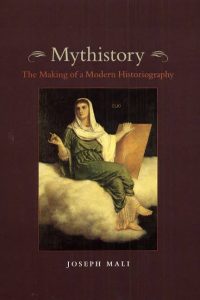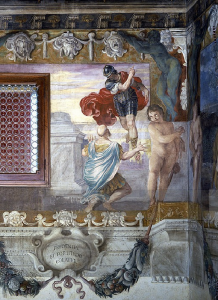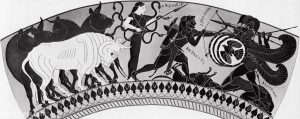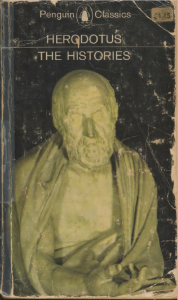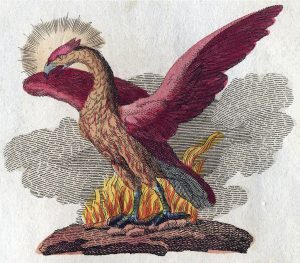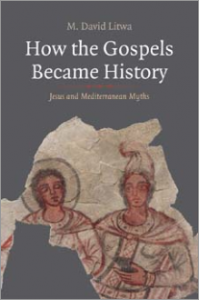 M. David Litwa declared at the outset of his book How the Gospels Became History
M. David Litwa declared at the outset of his book How the Gospels Became History
Whether or not the evangelists did report actual events is a separate question and is not my concern. (p.3)
So I remain mystified by his decision to make his first chapter entirely about the “Jesus Myth Theory”. It adds nothing to his argument about the “How the Gospels Became History” — which was the argument I wanted to read about when I sought out the book.
Litwa does excuse his discussion of the Jesus myth theory by explaining that the three “mythicist” views he will address are
examples of how comparison ought not to be done. (p. 22)
But he further delays this discussion by irrelevantly accusing most “nonscholarly mythicists” of being disgruntled and obsessed former fundamentalists.
[Maurice Casey] successfully showed that most of them were responding to their previous Fundamentalist views of Jesus. (p. 23)
Litwa cites nothing more than Casey’s assertions, magically transforming his baseless claims into a “successful demonstration”. I demonstrated that Casey’s assertions were lacking in any evidentiary foundation, with the abundance of evidence actually contradicting his claim. See Who’s Who: Mythicists and Mythicist Agnostics. Not a single testimony or publication (internet or print publication) of anyone who has left a fundamentalist or cultic church that I have read has “blamed Jesus” or expressed a desire to banish Jesus from history, though I suppose, given the bigness of the world, that there must be some exceptions somewhere. Former fundamentalists are generally either thankful to Jesus for bringing them out of their cultic associations or simply treat Jesus as an “innocent bystander”, the mere object of belief, while the villainy is always placed squarely on manipulative humans. I myself returned to mainstream churches after my cult experience and was very thankful and happy to do so. It was only after ongoing questioning that I eventually left mainstream Christianity after becoming an atheist, and even later still before I took any interest in the question of the historicity of Jesus.
I do have to wonder if M. David Litwa genuinely read Maurice Casey’s book against mythicists (Casey also personally attacks non-mythicists, anyone whom he appears to think has unfairly dared to criticize his work in the past) because the intellectual level of the book is surely an embarrassment to any professional scholar. Raphael Lataster remarked,
I find the posts by Hoffman, Maurice Casey, and Stephanie Fisher to be too mean-spirited, scornful, unconvincing, polemical, and amateurish to be even remotely worthy of consideration here. (Lataster, 133)
and I also posted some responses that are now archived here.
So Litwa informs readers that “nonscholarly mythicists” are
dispelling a phantom from their own tormented past[s] (though the daimon often returns — seven times as strong)
and that their mythicist belief is
born of seething resentment and (un)spoken rage against Fundamental Christianity (p. 24)
— without explaining what any of this has to do with his thesis that he has already said is not concerned with the question of historicity. Yet he does insist that there are serious Christ Myth scholars who are not former fundamentalists and that their arguments need to be taken more seriously. Why, or how this advances the thesis of his book, he does not explain. But having thoroughly poisoned the well Litwa proceeds to tackle the arguments of Bauer, Brodie and Carrier.
Bruno Bauer
Litwa manages to discuss Bauer’s “mythicist” views without once mentioning Paul or the New Testament epistles even though it was Bauer’s study of Paul that led him to conclude Jesus had not existed.
At the end of his investigation of the Gospels, Bauer is inclined to make the decision on the question whether there ever was a historical Jesus depend on the result of a further investigation which he proposed to make into the Pauline epistles. (Schweitzer, 139, my emphasis)
As long as Bauer studied the gospels he remained open to the possibility of a historical Jesus as the beginning of Christianity. Continue reading “Review, part 2 (Damnation upon that Christ Myth Theory!) : How the Gospels Became History / Litwa”



